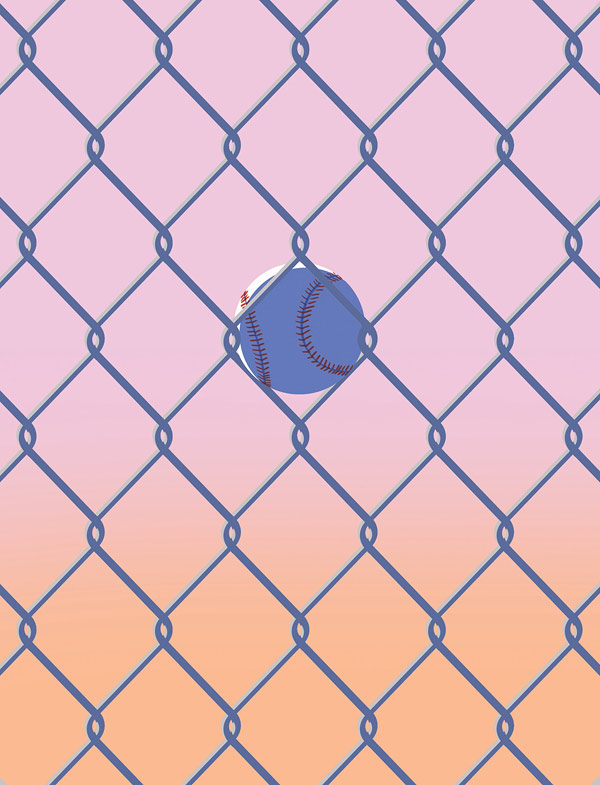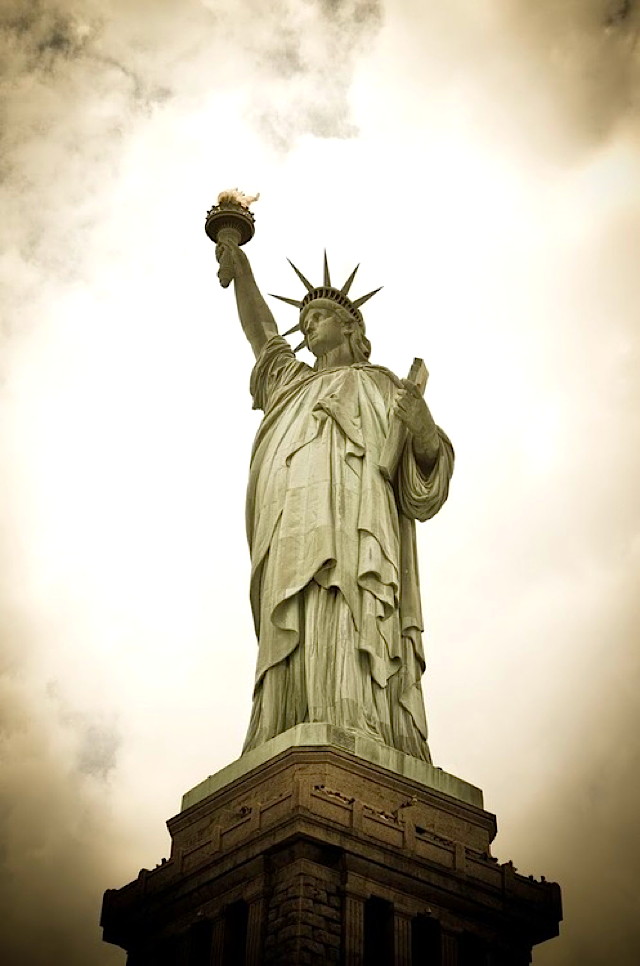
Through a circle that ever returneth in
To the self-same spot,
And much of Madness, and more of Sin,
And Horror the soul of the plot.
— Poe, The Conqueror Worm
At the Seattle houseboat where I write, it’s either spider mating season or a spider building boom. Unlike the rest of the builders in this burg, there’s no slump in the spider building boom. Here no bubble has burst. All about this floating world on the lake, spiders big and small are weaving elaborate webs in all the angles a host of houseboats offer.
In fact, so many spiders are getting so busy that it behooves you to begin the day waving a straw broom across your doorways and walkways lest you end up wearing a web. Getting your face slapped and your mouth filled with web is no way to start the day. I know. So sweeping the air with a broom like some latter-day sorcerer’s apprentice is required. That’s my current ritual and it works, most of the time. But webs, I’ve found, come in all sorts of shapes and diameters, and not all are easily seen and swept. Miss one and you get a face full of web and the spider gets, I imagine, very ticked off seeing his long night’s labor wiped out in a split second. If you both get very unlucky, you get a mouth full of the web with a crunchy spider filling. Not my idea of a crisp morning’s memorable moment. Certainly not the spider’s.
At the same time, you don’t want to be too enthusiastic about web wipeouts. I know how beneficial it is to have spiders at work in a wet environment like a houseboat community. Where spiders weave mosquito populations are severely reduced, flies too. If you want insect life kept down to a dull buzz, you don’t want to destroy any webs that aren’t directly in your way. Besides, after a fog or light rain at dawn, or in the slanting late afternoon light, you are can see dozens of gleaming diadem-dappled webs moving ever so gently in the light breeze off Lake Union. Regardless of how you feel about spiders, their work and their webs are both beneficial and beautiful.
Webs, as we know, are not so wonderful for flies. For flies, a spider’s web is, in the full meaning of the phrase, a dead end. Touch even one silken strand and you can’t shake it off.
The nature of the spider’s web is that once touched by a single strand, your struggles to shake it off enmesh you ever more securely in others until escape is hopeless. In the end, you are held not just by the single strand you started with, but by all the others that lie just to this side or the other. The spider will be along soon enough to wrap things up. The only safe way to escape the spider’s web is not to touch it in the first place.
At least that’s what I told the small fly that landed under the web next to my foot this morning as I stood outside on the railing with my coffee.
I’d noted the web between the two uprights when I’d first stepped out earlier brandishing my broom like Shiva the Destroyer, but since the web wasn’t going to interfere with me, I wasn’t going to interfere with it. Live and let be, I thought. I could have brushed it into oblivion with the broom to my right, but it was both beautiful and functional, so why destroy it? Why interfere? Live and let be. What a good Buddha I am. Or is it “Oh what a good Jainist am I?” I forget.
Then I noticed the fly. For a fly, it was kind of cute. It wasn’t a big buzzer fly that can batter on a window. It was a small fly, insignificant even by fly standards, a pipsqueak. It sat, bobbing slightly up and down as flies at rest often do, on the decking just below the web above. From my giant’s vantage point, it seemed to be scanning the green water and moored boats for whatever it is flies scan for with their ommatidium eyes. Being a fly it had no real knowledge that just overhead death lurked with its many invisible strands. Touch just one strand, fly up into just one, and that would be the end of my little fly’s all too short history.
That’s when I got the idea that I could help this small fly avoid destruction with the slightest of gestures. I could see it was courting an unpleasant and lingering death but it could not. The fly sensed no danger at all. Why would it? It didn’t have that powerful frame of reference we humans believe we have in the 21st century. It lacked our overweening certitude and preening “knowledge” that we finally know, to a certainty, all the important facts about the Universe — its size, its age, our place in it, and all the other hubristic crap we tell ourselves because, in the final analysis, we are still afraid of the great darkness that we’ve done our best to make larger and darker.
No, the fly was just moving in the world according to its instincts and programming. It was not at all like us. It was, I suppose, doing whatever felt either necessary or good to it at the time. Not at all like us. Or perhaps it was doing what it was doing because it had to do it. How can we ever understand what happens in the mind of a fly, when – for all our pride – we do not know what happens in our secret hearts; when we do not even know how we move our hands to make our gestures. If the fly got caught in the web above, it wouldn’t matter. It would be just one of the billions of small natural tragedies that happen every minute of every day in our brave new world where — so many of us seem to have decided — “purposeless matter hovers in the dark.” What right had I to interfere in the unfolding of nature?
Every right. I was not outside of nature but part of it too. And I was there at that time and that place. I could see the danger. The fly, for all the facets of its eyes, could not. A butterfly beats its wings in a garden in Peking, a fly settles to rest under a web on a houseboat in Seattle. God’s plan, Fate, Chaos Theory, or a minuscule meaningless moment? Probably a bit of all of the above. Plus the chance for a minuscule godlike moment for me.
I know, through repeated experience, that you cannot save people from themselves, but, I thought, I could at least save one small fly from her own foolishness. A small gesture, affirming life, but mine own. A tiny prayer sent up from a simple act here on this morning in my floating world.
I gestured towards the fly with my shoe. It took alarm and flew off a foot or two. And then it hovered and came back to land at the self-same spot. I gestured again, closer and with more vigor. Same reaction — a small box-shaped moment of flight and then right back to the self-same spot. Again with the shoe and yet again the stubborn pattern of escape and return on the part of the fly to the self-same spot.
Curious, I bent down and looked closer. It was then I saw a faint, thin strand of web above had already attached itself to the fly. Loose and long, the strand, a single strand barely whiter than the air around it, had already adhered to the fly’s shoulders. I guess it had been there all along but from far off and high above I hadn’t been able to see it.
Determined now to complete my mission of saving this fly from its fate, I waved my finger over the fly severing the strand. Alarmed, the fly flew away.
But it only flew a little way. Then it came back and settled roughly in the self-same spot.
In the same way it didn’t know it was trapped, the fly didn’t realize that it was free; that some omnipotent being beyond its ken had granted it grace. Instead, in response to some deeper programming, the fly returned again to its pre-ordained place in this infinitesimal corner of the universe. There it courted the same fate I’d tried to save it from, lifting up to fly about in the strange right-angled way that flies do as if seeking the strand I’d severed. And always returning to the self-same spot.
I finished my coffee and walked back into the room, leaving the fly to whatever fate may, in time, have befallen it.
Like so many human beings I’ve known, the fly was, I guess, fated to be there. All it would take would be one small move, one firm decision, the flight of a moment out over the calm water, and it would live. It couldn’t do it. It was tied to its place in the loom of life by strands too fine for me to see and far too strong for me to sever.
Through the glass I can see the spider, who owns the web under which my fly sits. Something, some faint tremor from a single strand, has alerted the spider and it is starting to scuttle, ever so carefully, from that shadow it waits in towards the center of its web.
I refill my cup and settle into my morning reading. Today it’s Pope’s “Essay on Man” where, after a few minutes, I read:
Oh blindness to the future! kindly giv’n,
That each may fill the circle mark’d by heav’n:
Who sees with equal eye, as God of all,
A hero perish, or a sparrow fall,
Atoms or systems into ruin hurl’d,
And now a bubble burst, and now a world.


![That Was the Whopper Weekend That Was [Illustrated] welcometohell](https://americandigest.org/wp/wp-content/uploads/2021/05/welcometohell-150x150.jpg)
![Allen Ginsberg: The Interview, <strong> ➡ 1972 ⬅ </strong> [Republished by unpopular demand] ginsbergnirvana](https://americandigest.org/wp/wp-content/uploads/2022/05/ginsbergnirvana-150x150.jpg)





 Gerard Van der Leun
Gerard Van der Leun
























Comments on this entry are closed.
Spidey has them up all over the woods and you must pay attention as many are spread across the path.
Nature keeps on rolling no matter what abominations man is up to and it is an example to follow.
Regarding the Redwoods from Sunday, they are the oldest trees on the planet and they get so tall because moisture is up there.
Survive the Thanatostopia Chiquitastan by any means necessary.
O, the beauty of Seattle, when I lived there. It was like a gem.
I suppose some theorists see the soul in a fly. I note how they have enough brain, or whatever, matter to annoy the hell out of me and it appears to be intention.
I’m glad you write, G. My reading list. I need to get that cranked up; there are webs on my brain.
An itsy bitsy spider climbed up the writer’s snout,
The writer took his pencil and dug the spider out.
He hit it with a tablet
And killed the spider dead
‘cause no one but a democrat
Welcomes bugs inside their head.
Hey, just rewriting the nonsense rhyme for today’s nonsensical world. 😉
Great post! Lyrical as ever G.
Is this current or from the past?
You said:
“Touch even one silken strand and you can’t shake it off.”
Spiders usual have two different types of silk that they spin, the stuff that makes up the structural members of the web, and then the sticky filaments that make up the trap. The silk that makes up the major members aren’t sticky at all, and can be relatively easily detached from whatever they’re hooked onto.
Most spiders can recycle their web material, so if you carefully study the web, and then detach it from whatever it’s on, you can usually collapse the web off to the side (like a doorframe, for example); even better is if you can see the spider on one side or the other and detach from the opposite side and collapse it onto the spider. They’ll ingest it, and re-use the material for the next web.
Running your own personal tensile strength tests on the structural web members is optional, but fun.
Interesting. Thanks for that info and insight.
You haven’t lived until you’ve had one of these wrapped around your head.
https://post.healthline.com/wp-content/uploads/2022/02/Banana-Spiders-body1.jpg
Being a sail boat racer, I’ve had the honor of racing all over Oregon, nor cal, and the sound. I’ve never been in a sailboat that wasn’t a Webb front to back.
Standard equipment on my boats was always a broom at the cabin entrance. I’ve gifted my three racers to younger families whom can’t afford a sail boat but really want to sail, well beer can race We’d nights.
The one boat that didn’t Webb up, was my NorthRiver 23, recently sold, don’t recall a time when webs were present.